A Few Words With...Miki Berenyi
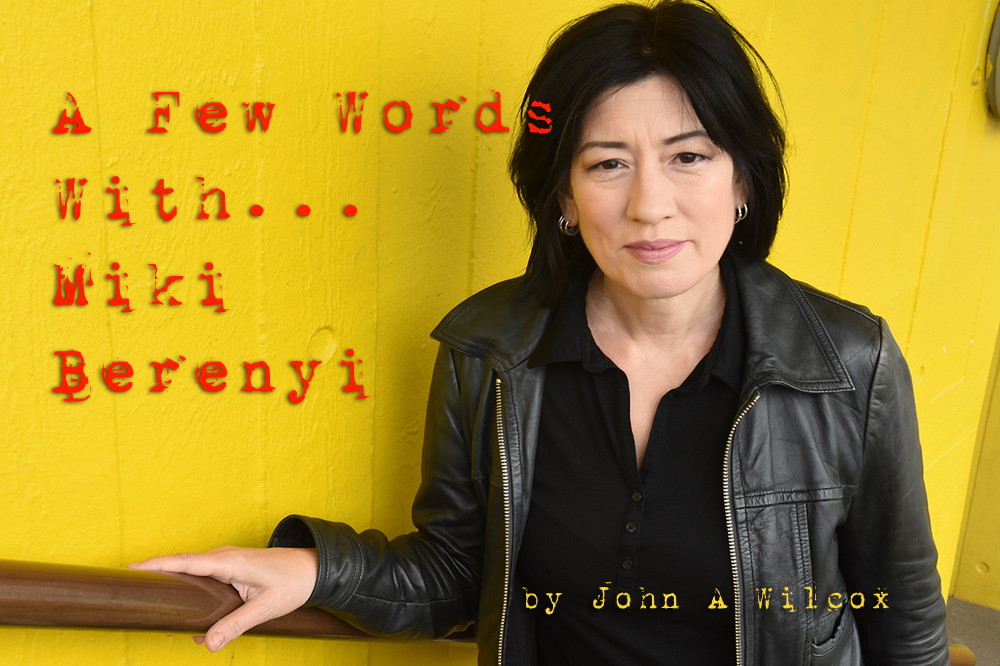
by John A. Wilcox
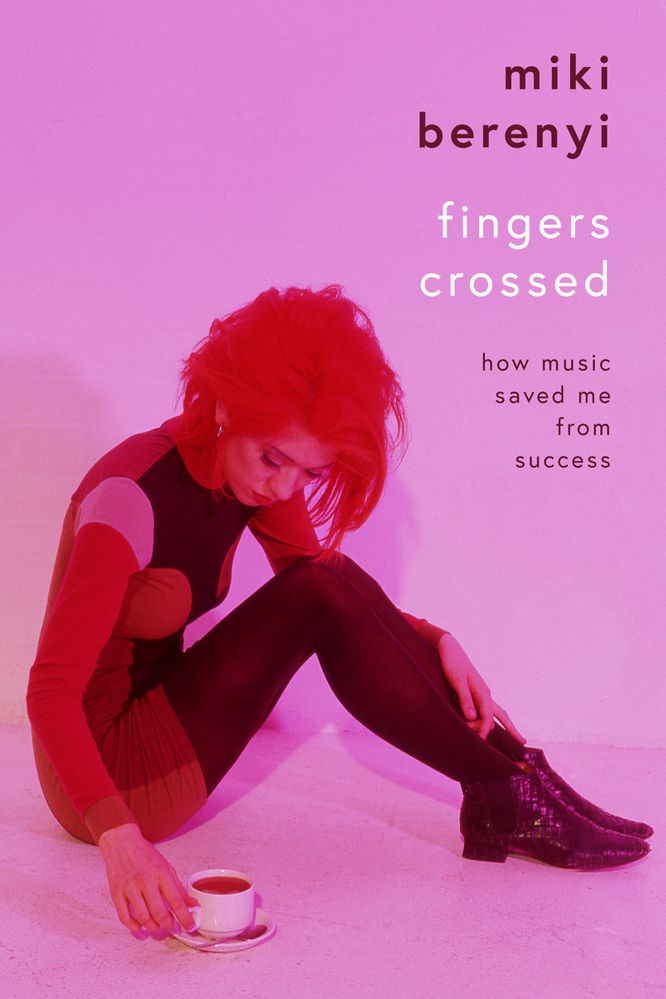
The band Lush will forever hold a special place in my heart. Since I hirst heard them in 1992 I was sold! Fascinating chord voicings & unusual approahes to harmonies drew me in and kept me there. The band released 3 proper albums - Spooky, Split & Lovelife. In fact you can find the Track-By-Track Miki Berenyi did for Progsheet right here : Lovelife The band dissolved in 1996 after their drummer Chris Acland took his life. In recent years Miki Berenyi fronts a fantastic band called Piroshka. Recently Berenyi took the time to pen a revealing memoir called Fingers Crossed. Berenyi graciously spent time with Progsheet to discuss this engrossing book. Join us...
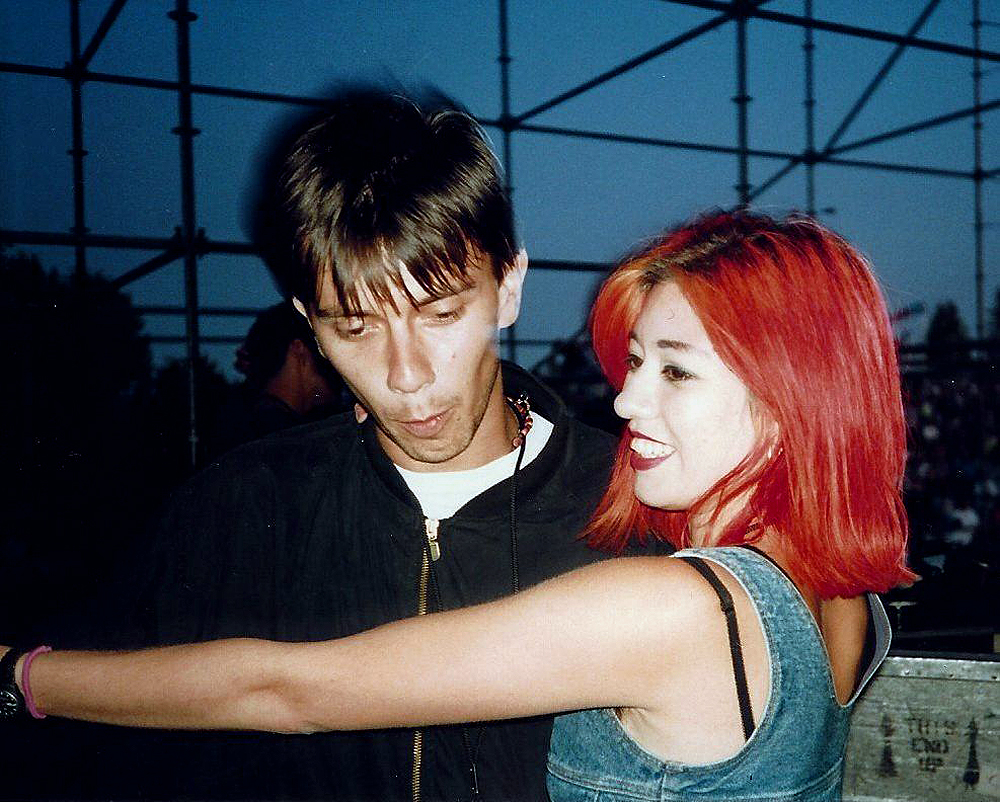
PS: I'd like to start with a quote from the book. For them I reserve a front row of panoramic-view seats on the kamikaze flight into the mountainside of my vengeful imagination.
MB: Okay. I'll tell you why that came into my head. When I worked at IPC - when I worked at TV Magazine after Lush broke up, one of the guys actually had a mock-up of a 747 and people would request people for the seats (laughs) like people they hated. Celebrities and politicians and things like that. We all need that. We all need a death elevator that we populate with people so we can not take it out on the world.
PS: I cried when I read the chapter about Chris Acland's death.
MB: I was in a bit of a mess myself when I was writing it.
PS: Fingers Crossed doesn't strike me as having an agenda and it doesn't succumb to the usual name-dropping trap other bios & autobios do. It also doesn't feel like you held much back in the book.
MB: Oh, I did. Well, some of it. I wrote probably half as much again as what actually ended up in the book. There's a sort of benefit to purging it all then reining it back. Thinking "Do I really need to say all of that?"Ultimately it's about what works, isn't it? I'm slightly fascinated when you said that you feel that most autobiographies have an agenda. I know what you mean about the name-dropping thing. I guess I'm wondering because I think that's become such a big field now - musical autobiographies.
PS: Please tell me a happy story about Chris that is not in the book.
MB: Oh my God! A happy story about Chris that's not in the book. I'm trying to think. I think I touched on so much stuff. There were a lot of times I'd go to the lake district with him and I think those were really nice times. It was actually quite to be away from all the different kind of...even we were in college. Obviously all the band stuff as well. I know that I was the singer and then you've got all of that going on but also Chris was very very much in demand. Clearly. Such a lovely bloke. So it was actually really nice when we would go away on a holiday. Not just when we were a couple but when we were just friends.
Chris came to Hungary with me to stay at my Dad's. We'd spend a couple of weeks of the summer on the Lake Balaton home which was really lovely. Chris felt my Dad was just hilarious. Could totally see the funny side of hum and the outrageous side. My Dad was really fond of Chris because he was just so easygoing and good fun to be around. Honestly, my Dad lived in such a fucking shithole. Nothing worked and everything was broken but Chris was the sort of person who didn't give a shit. It's a free holiday. He was like very easygoing. It was a good laugh. He was really just very good company. The sort of person who could make fun out of nothing. Just sitting around playing cards. Go for a swim. Go for a walk. Have some food. Just someone who actually is just fun to be around. I've met people who were great company because they make things happen. Chris wasn't really that. He was someone who you could just sit on a blanket with eating crisps and watching the sun set and just talk about complete bollocks. He was just a great person to share your space with.
I think that's why the end was such a shock to everyone. Because he wasn't someone - he was always the kind of person who could overlook the bad stuff. Even if you were like traveling around Europe on some train to get to Hungary and it was boiling and there weren't any seats and this, that and the other. He was never one to complain or let things get him down. He was always someone who would lighten the mood.
PS: How were you able to remember everything you write about in the book?
MB: First of all I was a quite over-the-top diary writer. I used to have a diary with me on tour and all the time. Admittedly about 80% of it is just fucking mental illness. There are lots of bits of details. I also wrote a shit ton of letters. It's quite interesting actually. I've got all the letters that were sent to me. It was really interesting reading through those because they're actually replying to a lot of things that I've said to them. There was quite a lot of archive stuff. I am a real hoarder as well. So I've got photos. In all the photos I used to write little captions under and dates and names and what was happening. So there's quite a lot of stuff that I could refer to including gig lists and other gigs I was going to. I'm quite geeky in that way. So I had a whole bunch of - I would even report conversations and sort of agonize over details of what was happening and stuff. So, yeah, a lot of source material.
There's also quite a lot of stuff that I talk about, especially guitars and stuff. I probably over-share all the fucking time. I constantly have conversations about - I'm interested in other peoples' childhoods and backgrounds and all of that sort of stuff. There's quite a lot of oft-repeated anecdotes and stories. It was Moose that said "Oh my God you've got to write about selling fucking bathroom parts on the streets of Vienna!" Those things come up in conversation occasionally. So it was really more about putting them in order. Putting them in order was hard work. All the memories. And revisiting them in a way that has a kind of balance. Everything in a diary is very visceral and very tunnel-vision at the time. And then a lot of the anecdotes or the discussions that I would have - you realize you tell stories a certain way because they're entertaining or they make you look better than you did look or whatever. Then there's reflectiveness. You sort of put a different cast on it because you're writing at the age of 55 and things look different through that passage of time. There's a bit more perspective to it. I did try to make a lot of the kind of younger stuff feel quite in the moment. I thought that was quite important. I had a real tussle about whether to put it in the present tense or in the past tense. Actually I thought there's something a bit more visceral - like you're going through it at the time - if I put it in the present tense.
PS: At times I almost felt I was intruding into your life as the book pulls very few punches. Yet it remains balanced and reasoned at the same time.
MB: That's a good point. I think especially when writing about some of the neglect or the abuse or whatever. That's actually got me thinking because I do remember thinking I don't want this to be something that people read and go "Oh, how terrible! God, if I'd have been there that wouldn't have happened." Or "That wouldn't have happened now!" Or blah blah blah. I think what I hoped was that...not to make it pedestrian but just to make it so it's not a huge dramatic moment of "Why isn't there anyone there to rescue me?" Even if that was happening and you know about it you probably wouldn't be able to do anything about it. It's a very tricky area for me to talk about that abuse because I don't want to trigger anyone else and how they feel about these things. But at the end of the day my experience of it was that - I use the word complicit and I don't mean that in the way that probably people think. But you are a bit. It's not like children when they're going through that kind of stuff run around ringing alarm bells and begging for help and people just refuse. You kind of cover it up yourself. I think I just wanted - writing about the trickier stuff in that area - I'm not a misery memoir poor me sort of person. That makes me uncomfortable actually. People are like "Oh my God I can't believe you said all this stuff!" Actually sharing it in a way that makes it incredibly sad. I hate people who are self-pitying...
PS: I didn't feel it came across that way reading it.
MB: I was quite conscious of making it not feel like that. Because that's not how it felt at the time. That's the point. I didn't go to bed every night weeping into my pillow thinking "Why is my life so terrible?" You just get on with it, don't you? It makes me angry and it makes me act in weird fucking ways. But it doesn't really make you behave in a way maybe other people who haven't gone through anything like that really think it's right. Admittedly obviously the abuse that I got was nowhere near on the level that other people have suffered. That has to be made pretty fucking clear.
PS: It's not a race. No one is lesser than anothers.
MB: No, for sure. But I think that if you are going through...there are different levels of it where I think it can really break you. I wasn't on that level. I've had people say to me "Oh my God! Social care was so terrible at the time. If it had been better you might have been protected or taken away from that!" And I said to them "God, the last thing on Earth I would have wanted is to be taken away from my Dad." No matter how fucking useless he could be, that would've been 50 times worse, frankly. It's so complicated!
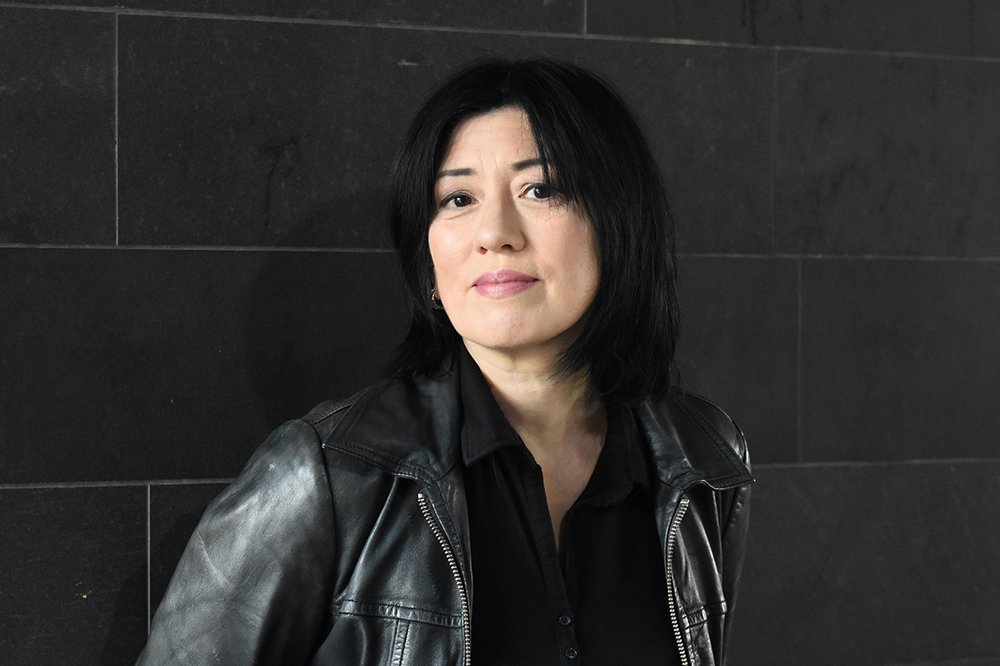
PS: New topic! How did this book come to be? Who initiated it?
MB: I think it probably started seeding itself when after Lush blew up and Piroshka formed I sort of realized I had to get some sort of fucking social media profile. So I actually was like "Alright. Fuck it. I'm gonna go" - I wasn't even on social media so I just joined Twitter and started posting stuff and it was all Lush stuff and I was putting up pictures and little anecdotes about it. And then I started getting a bit of a following and then I had "Oh, you should write a book - you should write a book - you should write a book." I was like yeah there's a big difference between a fucking Twitter post and a book. I think that's what possibly got on the radar of this publisher who was basically setting up a new imprint on Bonnier Books. They approached me and said "Would you write this book?" And I was like "No. Not interested" Then about 3 months later the magazine that I was working for was gonna fold and I thought "Oh, shit. OK, maybe I should have a crack at this. Maybe it's like fate." And then literally lockdown happened and I thought "Oh now I'm really fucked!" Like everything else that has ever happened in my life it was a confluence of luck and opportunity. At which point I felt "I'll fucking do this." And I really knuckled down. What's interesting is that it's the first time I've ever done something entirely for myself. Bands and stuff - I've never done solo records or anything. So to actually have to write something on my own or produce something creatively - that's quite a new thing and I really struggled. I really needed a publisher and an agent to constantly feed back and go "No, keep going. You're doing fine." Every time I was ready to throw in the towel and go "I'm fucking through! This is a complete waste of everyone's time."
PS: Why did you choose to end the book where you did?
MB: Well I think again a number of reasons. One of them was that it was gonna be - I knew it was gonna be difficult enough and tricky enough to write this book. Emma still doesn't speak to me. Our relationship has soured and trying to write about them without their good will already was a very difficult thing to do and quite a tricky path to negotiate. So the reunion that happened in 2015-2016 - it's still a bit close. I can't write about it. Allow me to digress. I read Kathy Valentine's book about when she was in The Go-Go's and I noted that the end page is a bit about the reunion of The Go-Go's and kind of glosses over any fucking bullshit - do you know what I mean? You can tell that there's something there. I kind of thought that if I have to go into Piroshka then I have to talk about that and I thought, given the rest of the book, it would be very very difficult for me to write about that without being completely honest which neither Emma nor Phil would thank me for. I mean they don't thank me for the rest of the book but they certainly wouldn't want me to fucking talk about that.
The other thing was time honestly. It took me so fucking long to write this book. I've never written a book before. I'm not a writer. I haven't been a writer. So it was a long and slow process of going up blind alleys and writing and rewriting and scrapping and what have you. It got to the point where if I'd gone on for much longer the book would've had to have waited for another year and I thought "I'm not fucking doing this for another fucking year! There's absolutely no way"
PS: Pardon the cliche but what did you learn about yourself from the book?
MB: Oh God! I think I learned that I was - probably with the childhood and the teenage stuff - I actually did learn that I was less of a victim than I thought I was. I do think that I carried quite a lot of resentment toward certain people in my adult life. Actually really, really delving into it I do think think some of that is still there but I'm of an age now where a lot of those people were way younger than I am now and I can see more why they did certain things. That applies to my parents and boyfriends and God-knows-who. You know what I mean? I can sort of see their perspective as well. You just get a bit more forgiving as you get older, don't you? You see the motives and the things that drive people. You're less solipsistic I suppose. When I was a teenager and I was possibly ranting about being childish I was thinking "Fuck him! He's a selfish prick!" And what have you. I can look back on it now and think "He was a young man as well." And all of those people in that gig scene as well. At the end of the day the Britpop rants that I end up in - it's really not intended to pick on individual people and go "Look at this person. They were horrible to me!" And this person. And that person. It's not a list of fucking gripes. It's just an acknowledgment that an environment didn't make me very happy and I don't think it made a lot of people behave in a very nice way either. I don't think it's down to individual people and that's probably the case for a lot of the book. Even my fucking Grandmother. I just think fuck knows what happened to her to make her like that. Maybe that. More forgiving. Perhaps.
PS: At the time were you aware that the Britpop movement wasn't nearly as much of a thing here in the States?
MB: I think I was because even in the kind of tours that we did - some of which I touch on in the book. Our naivete when we went to America - even though I'd been fucking going to America for a decade by then going to visit my Mum. America really was another country. I think it still is but I think the illusion of social media makes you feel that you know stuff that you don't, really. And back then we didn't even have that. So I would literally be in a city like - probably walking around fucking Toad's in New Haven and thinking like "This is like nothing in Britain! I don't even understand where I am." You know what I mean? I can't even get a foothold. To us America was like Disneyland and Starsky & Hutch. It was glamorous and a little bit dangerous or it was - I don't know - some really cliche version of the deep South. But we didn't really have much of a grasp on what normal life was like. There's a vastness to America that's very very different to get your head around if you're from Britain.
PS: It's a lot to get your head around if you're from here as well. I find it a very segmented country.
MB: I get that. I think there's a lot about Britain that's very segmented. I think all countries have that. People have very different experiences and they snipe at each other. Most people in the rest of Britain hate London and will tell you that. They won't stop about that. I think that a lot of the people that we met when we were first going over when Spooky was out - as much as we thought of America as very exotic, they thought of British people as very exotic. It was full of "Oh I love your accent!" (Miki does American voice)
PS: The label in the US seemed happy that anyone even asked.
MB: I understand that when you have alternative music it's like an underground where most people don't know. It's like a hidden gem that only you have. I understand bands' frustration when you would get - certainly what we had in this country - if you got The Smiths suddenly signing to EMI, people are like "Oh my God! They sold out!" Now they're playing some huge venue and people would be quite bitter about it and abandoned. There was a kind of inverted snobbery about a lot of that independent music at the time. But I think what actually played out is "Well, this is what you get when indie or alternative enters the mainstream." So there's kind of good reason for being a bit suspicious. It's quite a difficult path to tread because I think what happens with what you're describing is like "Oh my God nobody had heard of you and I'd play it." And Warner was so grateful that anyone would cover it - there's a sort of middle ground where it's really great. The band is allowed to make the music they want to make but the band will work a little bit hard to have assess to it. There's a separate world.
What happened after Split really - definitely under way around that time - is that all of that vanished. It became the mainstream. That's, to me, when it all got really not much fun. I consciously entered the underground by signing to 4AD. By being into the bands that I was into at that time. There were chart bands. There were plenty of huge bands playing at massive venues that I shunned. Because I didn't want to be a part of that. Then I ended up being a part of it because that's the way the whole industry went. They whisked the ladder away. They didn't leave independent music intact and just moved on. They took the fucking whole lot with them. By the time you get to the late nineties you've got bands being signed for, you know, possibly an album. If it doesn't sell - they're dropped. There are no 4ADs.
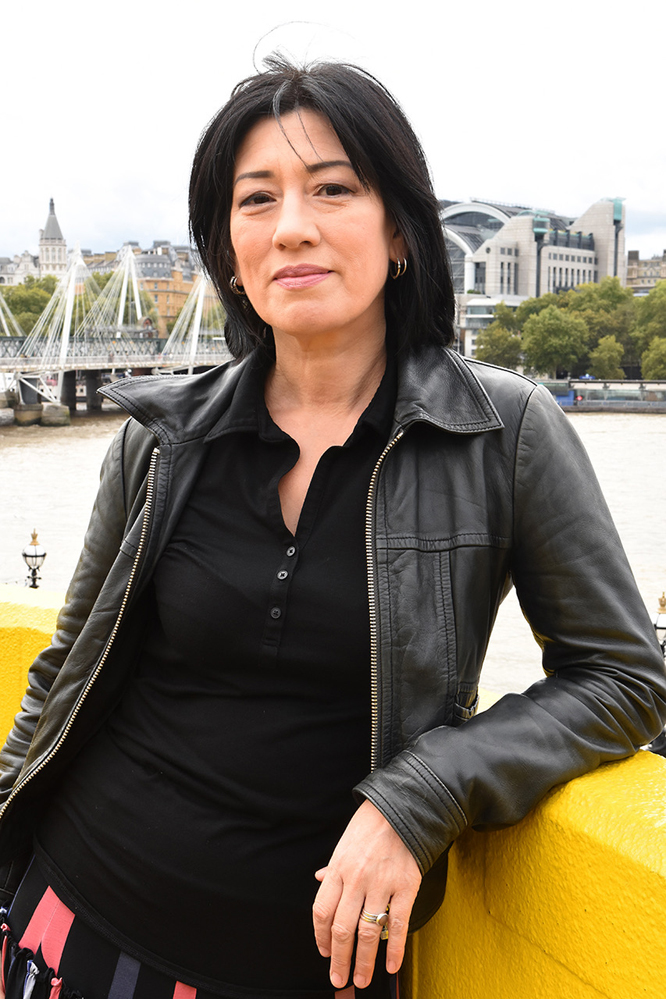
###
All photos are copyright their respective owners.
Table Of Contents
Contact





